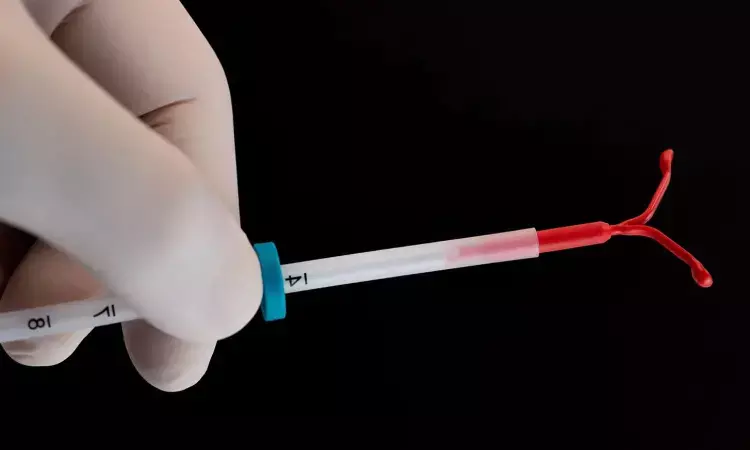- Home
- Medical news & Guidelines
- Anesthesiology
- Cardiology and CTVS
- Critical Care
- Dentistry
- Dermatology
- Diabetes and Endocrinology
- ENT
- Gastroenterology
- Medicine
- Nephrology
- Neurology
- Obstretics-Gynaecology
- Oncology
- Ophthalmology
- Orthopaedics
- Pediatrics-Neonatology
- Psychiatry
- Pulmonology
- Radiology
- Surgery
- Urology
- Laboratory Medicine
- Diet
- Nursing
- Paramedical
- Physiotherapy
- Health news
- Fact Check
- Bone Health Fact Check
- Brain Health Fact Check
- Cancer Related Fact Check
- Child Care Fact Check
- Dental and oral health fact check
- Diabetes and metabolic health fact check
- Diet and Nutrition Fact Check
- Eye and ENT Care Fact Check
- Fitness fact check
- Gut health fact check
- Heart health fact check
- Kidney health fact check
- Medical education fact check
- Men's health fact check
- Respiratory fact check
- Skin and hair care fact check
- Vaccine and Immunization fact check
- Women's health fact check
- AYUSH
- State News
- Andaman and Nicobar Islands
- Andhra Pradesh
- Arunachal Pradesh
- Assam
- Bihar
- Chandigarh
- Chattisgarh
- Dadra and Nagar Haveli
- Daman and Diu
- Delhi
- Goa
- Gujarat
- Haryana
- Himachal Pradesh
- Jammu & Kashmir
- Jharkhand
- Karnataka
- Kerala
- Ladakh
- Lakshadweep
- Madhya Pradesh
- Maharashtra
- Manipur
- Meghalaya
- Mizoram
- Nagaland
- Odisha
- Puducherry
- Punjab
- Rajasthan
- Sikkim
- Tamil Nadu
- Telangana
- Tripura
- Uttar Pradesh
- Uttrakhand
- West Bengal
- Medical Education
- Industry
Choosing Effectiveness: Patients Opt for Delayed Postpartum IUDs Despite Convenience of Immediate Options, study finds

USA: Recent research has shed light on patient preferences regarding the timing of intrauterine device (IUD) placement following childbirth, revealing significant insights into postpartum contraceptive choices. The study, published in a recent issue of Obstetrics & Gynecology, compares patient attitudes towards immediate versus delayed postpartum IUD placement, aiming to guide healthcare practices in meeting patient needs effectively.
The researcher revealed that patients preferred the lower complication rates and higher efficacy of delayed postpartum IUD placement over the convenience of immediate placement, with insurance considerations possibly affecting preference.
Sarita Sonalkar, Department of Obstetrics and Gynecology, Division of Family Planning, Perelman School of Medicine at the University of Pennsylvania, Philadelphia, PA, and colleagues used choice-based conjoint survey methodology to evaluate patient values and decision-making regarding immediate compared with delayed placement of postpartum intrauterine devices.
For this purpose, they conducted a cross-sectional study in which 200 nonpregnant, parous patients were surveyed. Participants chose between hypothetical postpartum IUDs differing in several attributes (placement timing, hormonal or nonhormonal IUD type, expulsion risk, 1-year efficacy, malposition risk, and risk of lost strings).
The primary outcome was a preference for immediate versus delayed postpartum IUD placement and the importance of placement timing relative to other attributes. The research team also evaluated whether demographic and neighborhood characteristics were associated with timing preference and attribute importance.
The study led to the following findings:
· The analysis included 190 participants. Most participants (62.6%) preferred delayed placement.
· There was no significant difference in timing preference by race or block-level Area Deprivation Index score.
· Patients who preferred immediate placement were more likely to have public insurance than private insurance (70.4% versus 29.6%); however, the majority of patients (55.1%) with public insurance still preferred delayed placement.
· Attributes of IUD type, malposition risk, 1-year efficacy, and expulsion risk all had greater effects on patient decision-making than placement timing.
· There was no difference in attribute importance by race, insurance type, or Area Deprivation Index score.
The findings showed that the patients preferred the higher efficacy and lower complication rates of delayed postpartum IUD placement over the convenience of immediate placement. These timing preferences may be affected by insurance considerations.
"No variation in the importance placed on attributes was found across demographic groups or neighborhood-level factors. This suggests that while both immediate and delayed postpartum IUD placement options should be available, counseling strategies should remain consistent regardless of individual demographic characteristics," the researchers concluded.
Reference:
Christensen T, Ostrowski S, McAllister A, Bynum B, Schapira MM, Sonalkar S. Patient Preferences for Immediate Compared With Delayed Postpartum Intrauterine Device Placement. Obstet Gynecol. 2024 Jun 18. doi: 10.1097/AOG.0000000000005647. Epub ahead of print. PMID: 38889434.
Dr Kamal Kant Kohli-MBBS, DTCD- a chest specialist with more than 30 years of practice and a flair for writing clinical articles, Dr Kamal Kant Kohli joined Medical Dialogues as a Chief Editor of Medical News. Besides writing articles, as an editor, he proofreads and verifies all the medical content published on Medical Dialogues including those coming from journals, studies,medical conferences,guidelines etc. Email: drkohli@medicaldialogues.in. Contact no. 011-43720751


